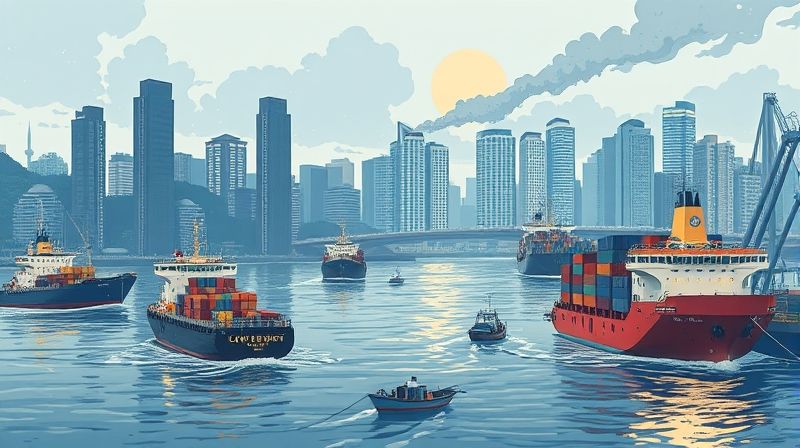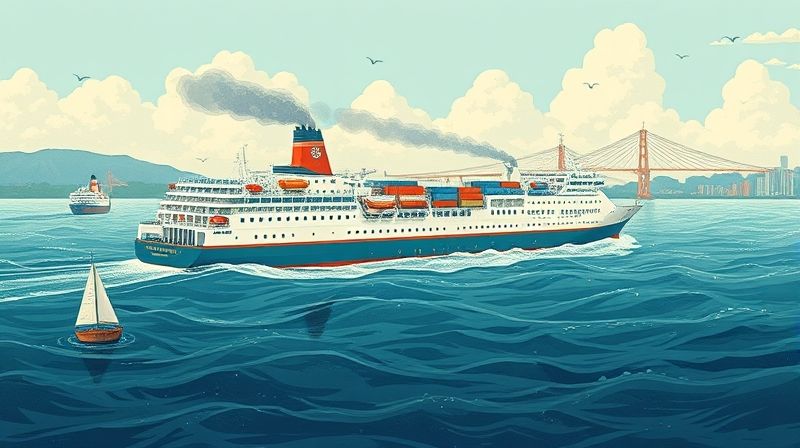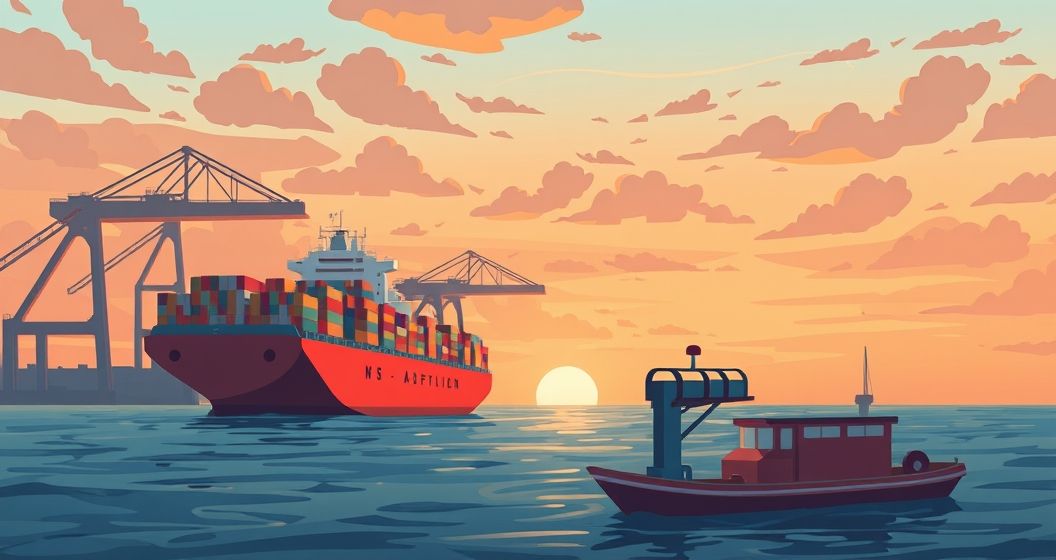Singapore Shipping Pollution Fine – A major dispute is brewing in the maritime world. X-Press Feeders, a Singapore-based shipping company, has categorically refused to pay a US$1 billion fine levied by a Sri Lankan court for environmental damages stemming from the sinking of the MV X-Press Pearl in 2021. This incident, widely considered Sri Lanka’s worst environmental disaster, resulted in widespread coastal pollution and significant ecological damage.
Singapore Shipping Pollution Fine: X-Press Feeders Defies Sri Lankan Court Ruling

Singapore Shipping Pollution Fine – Article illustration 1
In an exclusive interview with AFP, X-Press Feeders chief executive Shmuel Yoskovitz stated the company’s unwavering stance against the payment. He argued that complying with the court order would have far-reaching consequences for the global shipping industry, setting a “dangerous precedent” that could expose shipping companies to exorbitant and potentially unmanageable liabilities for unforeseen circumstances.
The MV X-Press Pearl Disaster: A Timeline of Events

Singapore Shipping Pollution Fine – Article illustration 2
The MV X-Press Pearl, carrying a cargo of chemicals and plastics, caught fire and subsequently sank off the coast of Colombo in June 2021. The resulting environmental catastrophe caused widespread devastation, impacting marine life, fisheries, and tourism. The scale of the pollution prompted Sri Lanka to pursue legal action against X-Press Feeders, ultimately leading to the substantial $1 billion damage claim.
International Implications and Legal Challenges
The refusal to pay raises significant questions about international maritime law and the liability of shipping companies in cases of environmental disasters. Legal experts predict a protracted legal battle, with potential appeals and counter-claims. The outcome will undoubtedly shape future regulations and practices within the global shipping industry. The case underscores the need for robust international frameworks to address environmental damage caused by maritime accidents, ensuring accountability and providing a clear path for compensation.
Arguments Against the Fine: Precedent and Liability
Yoskovitz’s assertion that the ruling sets a dangerous precedent is central to X-Press Feeders’ defense. The company likely argues that the size of the fine is disproportionate to its culpability and that holding them solely responsible for such a massive sum could financially cripple the company and potentially others in the industry. They may also challenge the legal basis of the Sri Lankan court’s jurisdiction in this matter, especially given the international nature of the incident.
The Road Ahead: A Long and Complex Legal Battle
The dispute between X-Press Feeders and Sri Lanka is far from resolved. The legal battle promises to be lengthy and complex, involving international arbitration and potentially multiple jurisdictions. The outcome will have significant implications for the global shipping industry, influencing future liability assessments, insurance premiums, and environmental regulations. The case highlights the urgent need for a more comprehensive and internationally agreed-upon system for handling environmental damage caused by maritime accidents, balancing the need for accountability with the realities of the global shipping industry.


